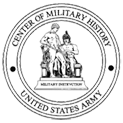
HEADQUARTERS TWENTY-FIFTH INFANTRY,
Montauk Point, Long Island, August 22, 1898.
The ADJUTANT-GENERAL U. S. Army, Washington, D. C.
SIR: I have the honor to submit a supplementary report to the original one made on the 19th of July, 1898, of the battle of El Caney
de Cuba, so far as relates to the part taken therein by the Twenty-fifth Infantry:
1. I stated in the original report that the Twenty-fifth Infantry, in advancing, broke away from and left the Fourth Infantry
behind. This may inferentially reflect on the latter regiment. It was not so intended, and a subsequent visit to the battlefield
convinces me that it would have been impossible for the regiment to advance to the fort, and, although it might have advanced a
short distance farther, it would have resulted in a useless slaughter, and that the battalion commander exercised excellent judgment
in remaining where he did and by his fire aiding the Twenty-fifth Infantry in its advance.
2. Colonel Miles. the then brigade commander, informed me that his first report of the battle would be brief and that a later and
full report would be made. In his former report I think he failed to give credit to myself and regiment. As he was soon after
relieved of the command of the brigade I assume that no further report will be made.
I have reported what the regiment did, but said nothing about my own action. I must, therefore report it myself or let it go
unrecorded. Distasteful as it is to me, I deem it duty to my children to state the facts and my claims based thereon, as follows:
- I was ordered to put two companies in the firing line. Before this line advanced the brigade commander informed me, and personal examination verified, that my right was in the air and exposed. On my own judgment I ordered a company as flankers, to that part of the line.
- As soon as the line had rested and become steadied at its first halt I ordered it to advance, and it continued to advance, although it broke away from the rest of the brigade.
- As this exposed the left to a galling and dangerous fire, I ordered, on my own judgment, a company to reenforce that part of the line and a company from the regimental reserve also to the fighting line.
These are the facts, and as my orders were to keep my left joined to the right of the Fourth Infantry, and received no further orders, my claims are as follows:
- That it was necessary to place a company on the right as flankers.
- That the conditions offered an opportunity to advance after the first halt and I took advantage of it.
- That the left being exposed by this advance of the line beyond the rest of the brigade, it was proper and necessary to reenforce it by two companies.
- That the two companies first deployed could not have reached the stone fort.
- That the three companies added to the firing line gave it the power to reach the fort.
- That the advance beyond the rest of the brigade was a bold and, without support, dangerous movement, but that the result justified the act. Had it failed I would have been held responsible.
- That I saw at each stage of the battle what ought to be done and did it. Results show that it was done at the right moment.
- That the Twenty-fifth Infantry caused the surrender of the stone fort.
I desire to repeat that it is with great reluctance that I make so much of this report as relates to
myself, and nothing but a sense of duty would impel me to do it.
Very respectfully,
A. S. DAGGETT,
Lieutenant-Colonel, Twenty-fifth Infantry, Commanding.
